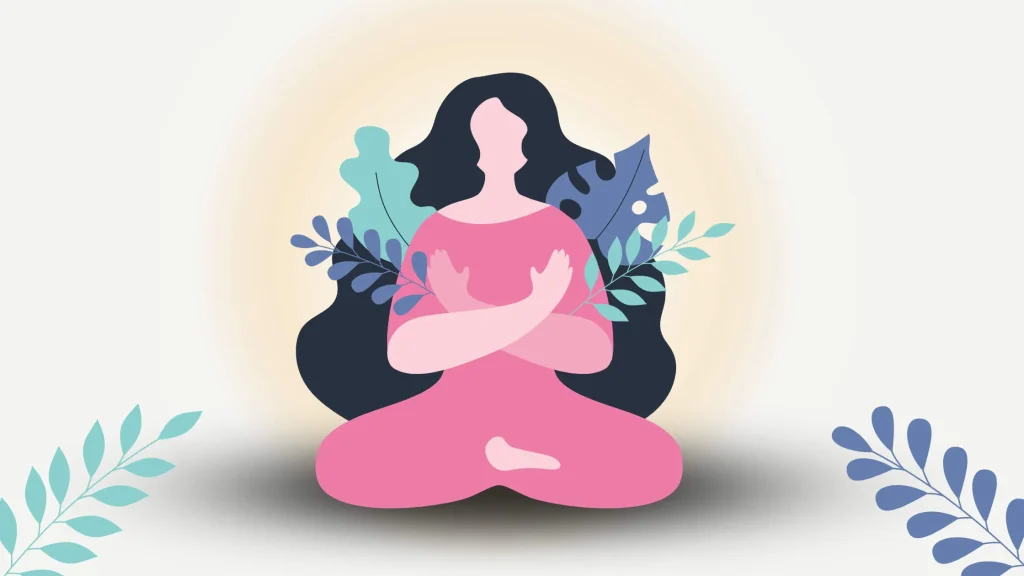Mindfulness and the Practice of Affirmations: How to Cultivate Awareness to Enhance Self-Esteem

The Path to Self-Discovery and Growth
Understanding oneself is a crucial step in the quest for better self-esteem and personal growth. The amalgamation of mindfulness and positive affirmations offers a powerful toolkit for transforming our mental landscape. This integrated approach not only enhances our confidence but also lays a foundation for a deeper appreciation of our self-worth.
The Essence of Mindfulness
Mindfulness encourages individuals to immerse themselves in the present moment, promoting a state of awareness and clarity. This practice is especially significant in bustling societies like Nigeria, where the fast-paced environment can often lead to stress and anxiety. By practicing mindfulness, one can experience a host of benefits:
- Improved emotional regulation: Individuals learn to respond to situations rather than react impulsively, which is essential in managing stress related to daily challenges.
- Increased focus and concentration: Mindfulness helps people engage fully in their activities, leading to greater productivity and satisfaction in both personal and professional realms.
- Greater resilience in facing challenges: Adopting a mindful attitude equips individuals with the tools needed to navigate life’s unpredictabilities more effectively.
For instance, a university student in Lagos may face numerous pressures from academics, family expectations, and social engagements. By incorporating mindfulness techniques—such as meditation or focused breathing exercises—into daily routines, they can improve their ability to tackle these challenges with a calm and balanced mindset.
The Power of Affirmations
Alongside mindfulness, affirmations provide a method for reshaping our internal dialogues, which can often become filled with negativity. By committing to daily affirmations, individuals take proactive steps to:
- Challenge negative thoughts: Affirmations empower individuals to recognize and dispute harmful misconceptions about themselves.
- Reinforce positive beliefs: Regularly stating affirmations can help solidify a positive self-image and foster self-love.
- Boost overall self-image: Confidence builds when one regularly acknowledges their own worth and potential.
In the Nigerian context, where community and family dynamics play a significant role, using affirmations can be especially powerful. For instance, a young artisan in Aba might say, “I am skilled and worthy of success” as part of their morning routine to start the day on a positive note, reinforcing their confidence to pursue entrepreneurial ventures.

The Cultural Significance
In a country like Nigeria, where societal norms often dictate personal values, integrating mindfulness and affirmations into one’s life can lead to profound changes. Not only can these practices elevate an individual’s mental well-being, but they can also inspire a ripple effect within communities. When individuals prioritize self-care and self-awareness, they create environments that encourage support, understanding, and collective growth.
Ultimately, embracing mindfulness alongside affirmations paves the way for a more fulfilled life. As individuals begin to appreciate their inherent value and develop a sense of peace, they are better equipped to face life’s complexities and foster connections with others, enriching both their personal and communal lives.
CHECK OUT: Click here to explore more
Integrating Mindfulness and Affirmations for Personal Transformation
The intersection of mindfulness and affirmations creates a unique opportunity for individuals seeking to enhance their self-esteem by fostering a deeper sense of self-awareness. Cultivating an understanding of one’s thoughts and emotions is essential, as it lays the groundwork for reinforcing a positive self-image. In Nigeria, where societal pressures and cultural expectations can often weigh heavily on individuals, integrating these practices into daily life can lead to substantial shifts in perspective and personal growth.
Mindfulness: The Art of Being Present
At its core, mindfulness involves tuning into the present moment—acknowledging one’s thoughts, feelings, and physical sensations without judgment. This state of awareness rituals helps individuals to reconnect with themselves, especially in a landscape where distractions are plentiful. Engaging in mindfulness practices can unlock numerous psychological benefits, including:
- Reduction of stress and anxiety: Mindfulness techniques have been shown to lower cortisol levels, promoting a calmer emotional state and allowing for more effective stress management.
- Enhancement of self-awareness: Mindfulness encourages individuals to observe their internal dialogues, shedding light on any negative self-perceptions that may be holding them back.
- Improved decision-making: By being present and mindful, individuals can approach situations with clarity, leading to more thoughtful and constructive choices.
For example, a working professional in Abuja grappling with high expectations and workloads can benefit from short mindfulness practices, such as deep-breathing exercises or meditation. Integrating just ten minutes of mindfulness into their routine can significantly alter their outlook and self-perception, making them feel more grounded and capable of confronting daily challenges.
Affirmations: Rewriting the Narrative
While mindfulness provides the awareness needed to recognize negative thought patterns, affirmations serve as a proactive tool for changing those patterns. Regularly stating personal affirmations helps in transforming an individual’s mindset, allowing them to:
- Overcome self-doubt: Affirmations act as counter-narratives to negative beliefs, empowering individuals to reject harmful thought cycles.
- Build a consistent positive self-image: The repetition of affirmations like “I am strong and capable” helps condition the mind to accept and internalize these affirmations as truths.
- Encourage resilience: When faced with challenges, individuals who practice affirmations are more likely to maintain a positive attitude and bounce back faster.
Imagine a young teacher in Ibadan, standing before her class each day and saying, “I am making a difference in the lives of my students.” This affirmation can profoundly impact her confidence and influence her teaching approach, ultimately leading to better classroom dynamics and improved student engagement.
The Synergistic Relationship Between Mindfulness and Affirmations
When practiced together, mindfulness and affirmations can create a powerful feedback loop. Mindfulness brings awareness to the problems at hand, allowing individuals to identify the negative beliefs that may be hindering their self-esteem, while affirmations provide the reinforcement needed to combat those beliefs. This combination can generate a transformative impact not only on individual well-being but within community dynamics as well.
As Nigerians embrace these practices, they not only embark on personal journeys of self-discovery but also contribute to a more compassionate and supportive society. The benefits of mindfulness and affirmations extend beyond the individual, potentially empowering collective efforts to uplift and inspire one another through shared experiences of growth and understanding.
| Category | Details |
|---|---|
| Mindfulness Practice | Cultivates present-moment awareness and recognition of thoughts and emotions. |
| Affirmations Usage | Boosts self-esteem by reinforcing positive self-perception and countering negative thoughts. |
The integration of mindfulness in daily routines provides a pathway to recognize and appreciate one’s thoughts without judgment. In this state of awareness, individuals can begin to understand the impact of negative beliefs that often undermine self-esteem. Mindfulness, combined with the strategic use of affirmations, creates a powerful tool for personal growth. Engaging with affirmations daily reinforces the idea that inherent worth exists regardless of external factors.For instance, a simple affirmation such as “I am enough” can change the narrative of self-doubt. When paired with a practice of mindfulness, individuals learn not only to say these affirmations but to feel their truth. This practical approach allows for deeper introspection and the abolition of self-limiting beliefs, enabling individuals to step into their power confidently. The combination of these practices opens countless possibilities for enhancing both mental well-being and self-esteem, inviting readers to explore how they can implement these techniques into their lifestyle, thus fostering an enriching journey of self-discovery and personal empowerment.
CHECK OUT: Click here to explore more
Practical Steps to Incorporate Mindfulness and Affirmations
Embarking on the journey of self-improvement through mindfulness and affirmations requires actionable strategies. For many individuals in Nigeria, the key to integrating these practices lies in creating daily rituals that resonate with their daily experiences, enhancing accessibility, and building consistency. Here are several practical steps to consider:
Establish a Daily Mindfulness Routine
Creating a dedicated time for mindfulness practicing encourages a habitual engagement with self-awareness. For instance, individuals can start with mindful breathing to ground themselves each morning. Taking five minutes for deep inhalations and exhalations while visualizing peaceful scenery can help cultivate a center of calm before facing the hustle of daily life.
Additionally, incorporating mindfulness into everyday tasks can amplify its benefits. Whether cooking, commuting, or walking, practitioners can focus on sensations—the warmth of the stove, the rhythm of movement, or the sounds around them—transforming mundane activities into opportunities for awareness.
Crafting Personal Affirmations
In tandem with mindfulness, the formulation of personalized affirmations can be exceptionally empowering. Rather than relying on generic phrases, individuals are encouraged to reflect on their unique strengths and aspirations. A nurse in Port Harcourt, for instance, might use the affirmation, “I am compassionate and make an impact in my patients’ lives,” which resonates deeply with her professional identity.
- Write down your affirmations: Keeping a journal to record affirmations not only reinforces commitment but also provides a visual reminder of one’s self-worth. Regularly revisiting these statements can enhance their potency over time.
- Utilize visual cues: Displaying affirmations in visible locations such as mirrors, desks, or on phone backgrounds can create habitual reinforcement throughout the day.
Integrating cultural elements is essential for relatability. Consider incorporating local proverbs or sayings that resonate with personal values; this adds a layer of cultural richness to the practice.
Engaging the Community for Collective Growth
Mindfulness and affirmations can also thrive within group settings. Engaging with community groups can provide a supportive environment for discussing experiences and sharing individual affirmations. This concept is particularly effective in Nigeria, where communal ties can enhance motivation and accountability. Attend workshops or join online groups dedicated to personal empowerment, where members encourage each other’s growth through shared affirmations and mindfulness exercises.
Moreover, schools and workplaces can implement mindfulness practices and affirmation sessions. For example, having a weekly assembly in schools focused on self-esteem and affirmations could foster an environment where children learn to appreciate themselves and their peers—building a more resilient generation.
Tracking Progress and Celebrating Milestones
Measuring progress is essential in the journey of self-discovery. Individuals should consider maintaining a personal progress log, documenting daily mindfulness experiences and affirmation practices. This reflection can reveal patterns over time, showing how both practices have influenced self-perception and emotional well-being.
Celebrating milestones, no matter how small, reinforces motivation. Whether it’s successfully incorporating mindfulness into a busy schedule or living out an affirmation during challenging times, recognizing these achievements fosters a deeper sense of accomplishment and builds self-esteem.
Incorporating these practices into daily life involves commitment and creativity. For the individuals of Nigeria, as they embrace these transformative elements of mindfulness and affirmations, they embark on a journey not just of personal growth, but of nurturing a collective spirit, bolstering the strength of their communities while enhancing self-awareness and esteem.
SEE ALSO: Click here to read another article
Conclusion
In the ever-evolving landscape of self-improvement, mindfulness and the practice of affirmations stand out as powerful tools for enhancing self-esteem and cultivating greater awareness among individuals. By adopting simple yet transformative techniques, people in Nigeria can bridge the gap between their potential and self-perception. Establishing daily mindfulness routines—whether through guided meditations or integrating awareness into everyday tasks—offers individuals a chance to reconnect with themselves amidst the demands of life.
Furthermore, the creation of personalized affirmations rooted in one’s cultural context not only reinforces a positive self-image but also aligns with local values and beliefs. This connection fosters a sense of identity, empowerment, and community support. Engaging with friends and family in these practices can amplify their effect, creating a nurturing environment where collective growth is celebrated.
As individuals jot down their progress and celebrate milestones, they foster a culture of recognition and accomplishment. Ultimately, through consistent application of mindfulness and affirmations, a ripple effect can be created—transforming personal development into a communal journey toward greater self-awareness and self-acceptance.
In conclusion, as Nigerians weave these practices into the fabric of daily life, they not only enhance their own self-esteem but also inspire those around them, leading to a healthier, more resilient society. It is in this collective embrace of mindfulness and affirmations that a sustainable legacy of well-being can flourish.


